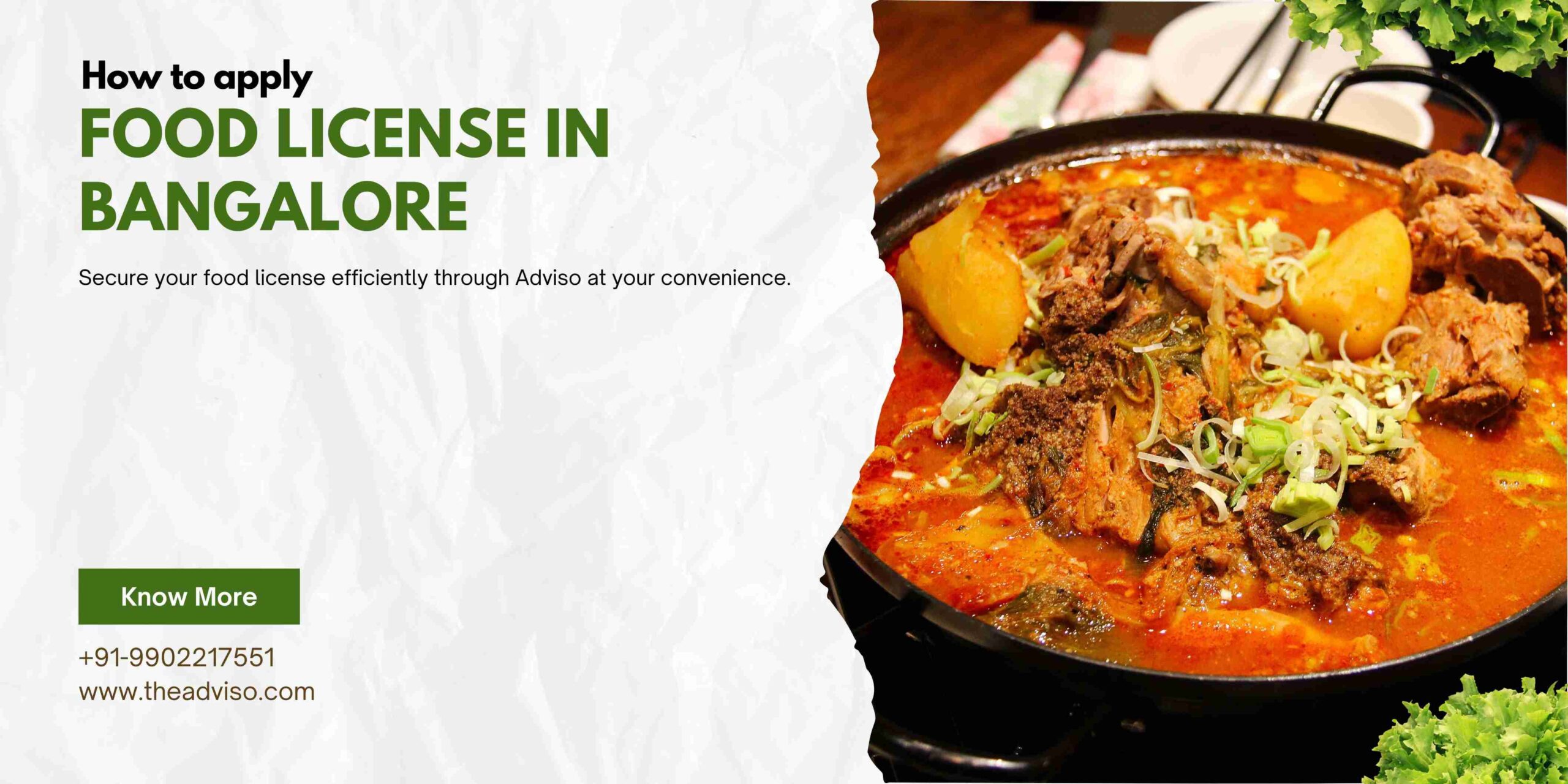Food License in Bangalore
A food license serves as a mandatory legal approval for food businesses in India. From packaging facilities, food suppliers, and production units to eateries, food registration applies to almost all entities serving the food sector irrespective of turnover and operational footprint. Falling under the Food Safety and Standards (FSS Act 2006), this registration is issued by the apex regulator viz. Food Safety Standards Authority of India, aka FSSAI. The FSSAI approval has ubiquitous applicability, covering every food business operating in India. The article illustrates a detailed guide for securing a food license in Bangalore.
Understanding the Type of FSSAI license
FSSAI essentially grants three types of food licenses in India. These include Basis registration, State License, and Central license. The applicability of each approval varies depending on the operation footprint and yearly turnover. Here’s the snapshot of these licenses:
FSSAI Registration:
This is a basic approval that applies to food businesses having a yearly turnover of less than Rs 12 lacs. From roadside eateries to a tea stall, this basic registration essentially covers small businesses and food vendors.
FSSAI State License:
This license spans moderately large food businesses operating in a single state. Currently, it applies to businesses complying with a turnover threshold of 12 lacs-20 crores Rs.
FSSAI Central License:
FSSAI Central license encompasses food businesses with a sizeable operating footprint, exceeding from one state to another. Technically, businesses reaping over Rs 20 crore annual turnover must apply for this license.
How to apply for a food license in Bangalore online?
Applying for a food license in Bangalore requires complying with various requirements depending on the license type. These include performing food testing, implementing a food safety plan, keeping required hygiene, training staff, following packaging norms, documenting key processes, streamlining operations per the FSSAI norms, arranging paperwork, and filing paperwork.
The online process to apply for a Food license in Bangalore is as follows:
- Head to the online portal viz. FoSCoS.
- Create an account if necessary and head to the application section
- Wait till a new window appears on your screen.
- Select your business type and correct turnover criteria
- Wait till an e-form prompts on your screen.
- Fill out the e-form with relevant details concerning the staff, directors/partners, facility, yearly production, etc.
- Upload the required documents advised by the portal.
- Post document uploading, you will be headed to the payment page wherein you can submit the required fee.
- Once you are done with the fee submission, download the reference ID for future reference.
The fee submission shall mark the successful submission of the application and paperwork to the concerned department. In response, a dedicated FSSAI department will take care of the document’s vetting and accordingly grant the certification based on their assessment. It is noteworthy that any error or non-compliance concerning the paperwork can incur an event like application cancellation. Therefore, be mindful while applying for FSSAI approval.
Document to Consider Before Applying for Food License in Bangalore
Based on the license type chosen, you must arrange the following paperwork without fail:
For Basic FSSAI Registration:
- Proof of address, such as a Utility bill or Rent agreement.
- Business details, including the name, address, and type of business.
- Proof of identity, such as an Aadhar card, Voter ID, or Driving license.
- Completed and signed Form A.
- A recent passport-sized photograph of the applicant.
For State FSSAI License:
- MOA and AOA (Memorandum of Association and Articles of Association) if the business is a company.
- No Objection Certificate (NOC) from the municipality or local body.
- Proof of possession of premises, such as a Sale deed or Rent agreement.
- Completed and signed Form B.
- Blueprint or layout plan of the processing unit.
- A recent passport-sized photograph of the applicant.
- Proof of address, such as a Utility bill or Rent agreement.
- List of food products that will be handled.
- Partnership deed or Affidavit of Proprietorship, if applicable.
- Food safety management system plan or certificate.
- Proof of identity, such as an Aadhar card, Voter ID, or Driving license.
For Central FSSAI License:
- Recall plan, if applicable.
- MOA and AOA if the business is a company.
- No Objection Certificate (NOC) from the municipality or local body.
- Source of raw material for milk or meat, if applicable.
- Blueprint or layout plan of the processing unit.
- Water analysis report issued by a recognized public health laboratory.
- Proof of possession of premises, such as a Sale deed or Rent agreement.
- List of food products that will be handled.
- Completed and signed Form B.
- Food safety management system plan or certificate.
- Certificate from the Ministry of Tourism (only for hotels).
- NOC from FSSAI for imports.
- Proof of address, such as a Utility bill or Rent agreement.
- Partnership deed or Affidavit of Proprietorship, if applicable.
- A recent passport-sized photograph of the applicant.
- Proof of identity, such as an Aadhar card, Voter ID, or Driving license.
Key Compliances Concerning the Food License in Bangalore
Once you successfully secured the food license in Bangalore, abide by the following FSSAI’s directions to stay compliant and penalty-free.
- The food facility must adhere to hygiene standards as recommended by FSSAI.
- The product’s packaging and promotional materials must reflect the food license number and logo.
- Consider HACCP principles for implementing the Food Safety Management System.
- Packaging must comply with the FSSAI norms.
- Use of adulteration or adding erroneous ingredients is a pusinable offense under the FSS Act 2006.
- Adherence to prescribed limits is paramount when using preservatives.
- The introduction of novel food products or ingredients requires FSSAI’a authentication.
- FSSAI recommended the use of food-grade packaging materials.
- Documenting key processes and the food supply chain is vital to stay transparent.
- The working staff must have ample exposure to food safety practices and hygiene standards.
Conclusion
Applying for a food license in Bangalore or any region is mandatory to stay compliant with governing legislation. Overlooking this license can incur severe penalties for defaulters. By considering this guide, you can apply for FSSAI approval easily. If you need further assistance, connect with Adviso, where licensing is made easy through a tailored approach.
Read Our Article: A Comprehensive Guide To Food License In Maharashtra




